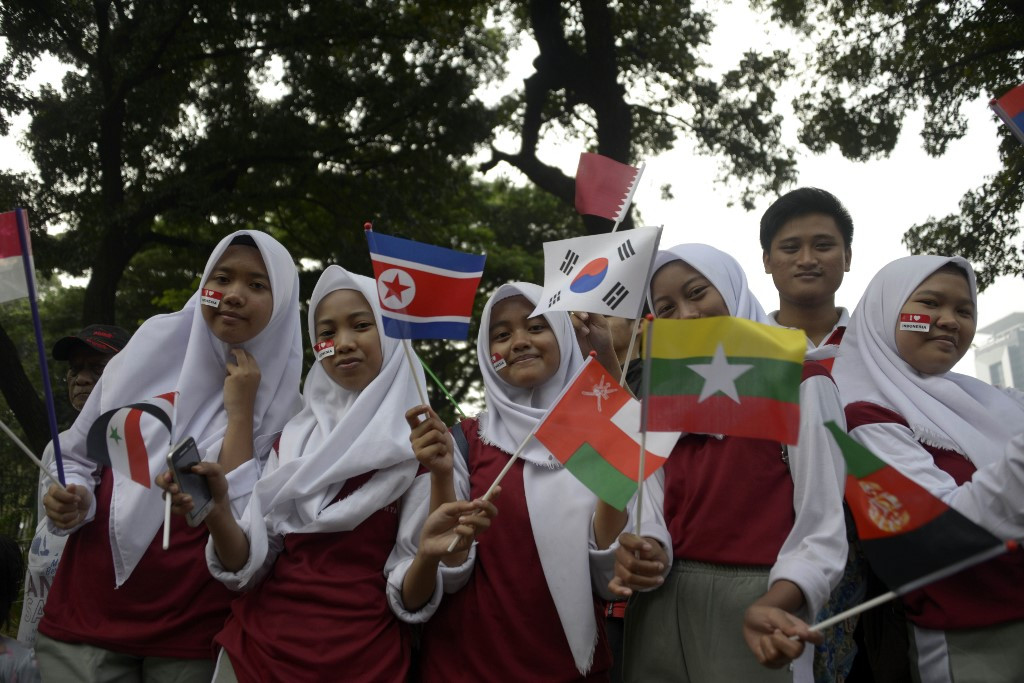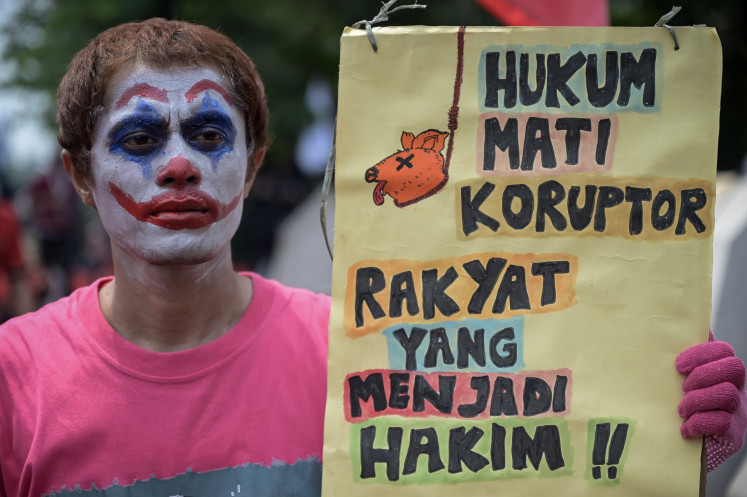Popular Reads
Top Results
Can't find what you're looking for?
View all search resultsPopular Reads
Top Results
Can't find what you're looking for?
View all search resultsYouth dismiss violent extremism but prone to intolerance
42% of survey respondents rejected Shia, Ahmadiyah sects of Islam
Change text size
Gift Premium Articles
to Anyone
I
ndonesian youth firmly reject violent religious extremism but remain prone to religious intolerance, a new survey by the International NGO Forum on Indonesian Development (INFID) and the GusDurian Network has found.
The survey, conducted from November to December 2020 in six cities across the country, defines intolerance as negative or hostile attitudes toward groups with different beliefs and the tendency to create disturbances for them.
While 93 percent of 18- to 30-year-olds who answered the questionnaire agreed with the principle of tolerance, 42 percent of respondents rejected the Shia and Ahmadiyah sects of Islam – considered some of the most discriminated against groups in the country.
Nearly 35 percent of respondents said they would decline to offer congratulatory wishes to people of other faiths, particularly in cases of non-Muslim religious observances, while 37 percent believed Indonesians must follow Islamic values because they lived in a Muslim-majority country.
“These findings strongly indicate that while young people firmly reject any form of religion-based violence, they are still prone to being intolerant,” said Ahmad Zainul Hamdi, GusDurian activist and a lecturer at Sunan Ampel State Islamic University (UIN) in Surabaya, during a webinar on Tuesday.
The survey was conducted in districts of Surabaya, East Java; Surakarta, Central Java; Bandung, West Java; Makassar, South Sulawesi; Yogyakarta; and Pontianak, West Kalimantan, and involved 1,200 respondents.
Read also: Indonesia’s religious minority students struggle against systemic bigotry
Religious conservatism pervades much of the Sunni Muslim-majority country, and intolerance and discrimination remain a pebble in the shoe of the multicultural and multiethnic nation.
However, the survey found a shift toward tolerance and nonviolence among Indonesian young people, compared to a similar survey conducted five years ago.
Ahmad said that almost 95 percent of respondents in 2020 were against acts of terror, up from the nearly 80 percent of those who were surveyed in 2016.
INFID’s 2016 survey coincided with the divisive trial of then-Jakarta deputy governor Basuki Tjahaja Purnama, a Christian, who was eventually found guilty of blasphemy amid a wave of intolerant rallies against him.
Basuki’s trial served as a watershed moment in Indonesia amid a swell of religious conservatism over the previous decade that, in some manifestations, had included hate speech and the persecution of religious minorities.
More recently, discriminatory attitudes have spread to young people, often through educational institutions, as was the case at a public school in West Sumatra that made headlines in January for requiring all female students to wear a hijab regardless of their beliefs.
Read also: 'No one should be self-righteous': Jokowi emphasizes democracy, tolerance in annual address
This controversy prompted the government to issue a joint ministerial decree (SKB) banning public schools from prescribing religious attire for students – a move that was widely welcomed but still elicited pushback in some conservative circles.
Religious Affairs Minister Yaqut Cholil Qoumas addressed this sentiment during a discussion on Indonesian Muslim culture on March 13 but said the various studies showing increased intolerance were not reason to worry extensively.
“Indonesia, much like other countries, faces a wave of religious conservatism that is largely attributed to the strong current of information flow among the youth,” Yaqut said, as quoted by kompas.com.
“[But] we don’t have to be overly concerned because this trend has not reached the mainstream of society.”
However, Ninik Rahayu of the National Resilience Institute (Lemhanas) said it was important nonetheless for the state to engage and build partnerships with youth communities “because only involving parents and school communities won’t be enough to address intolerance”.
“These youth communities can act as a link to widely circulate government regulations on religious intolerance,” she said at the INFID webinar on Tuesday.
Alliance of Independent Journalists (AJI) secretary general Ika Ningtyas said social media played a significant role in exposing young people to intolerant perspectives, considering that they were heavy internet users.
Citing a Communications and Information Ministry digital literacy survey conducted last year, Ika said religious narratives on social media were prone to perpetuating misinformation, which could end up providing fodder for discrimination or attacks against minority groups.
According to the INFID survey, young Indonesians tend to idolize religious figures like Abdul Somad and Rizieq Shihab because of their massive popularity on social media and not particularly because of their religious teachings.
“I consider the results of this study a warning that there are developments that [we] must take notice of in order to address violent extremism,” said Muhammad AS Hikam, an expert at INFID and a political analyst at President University.










